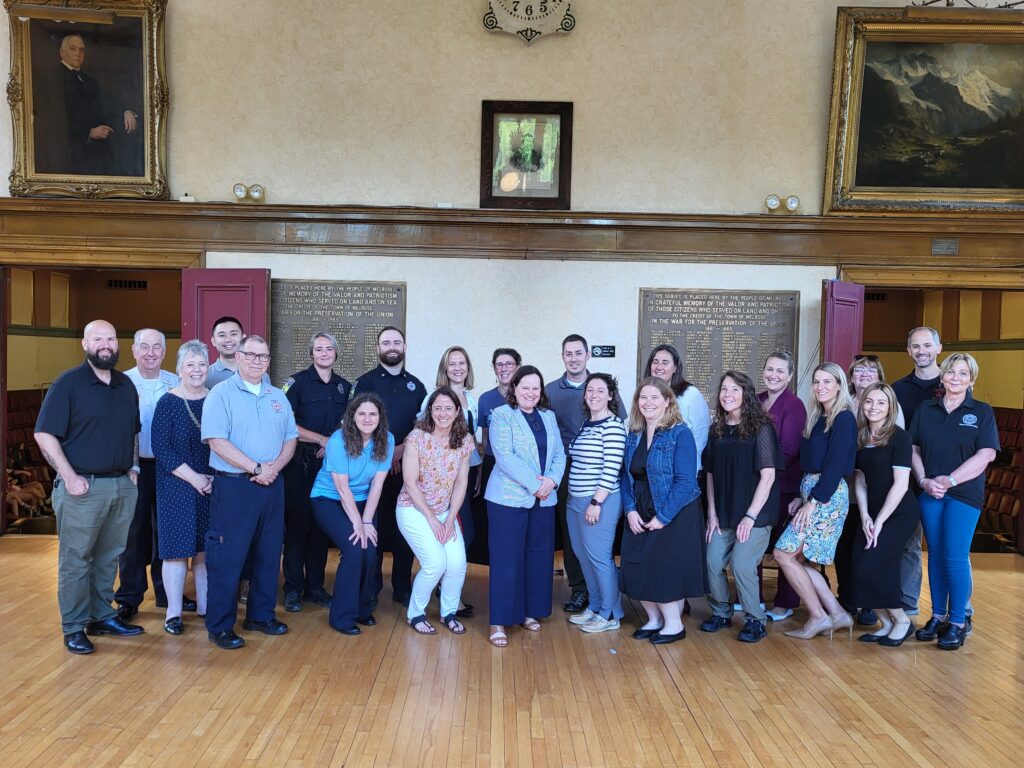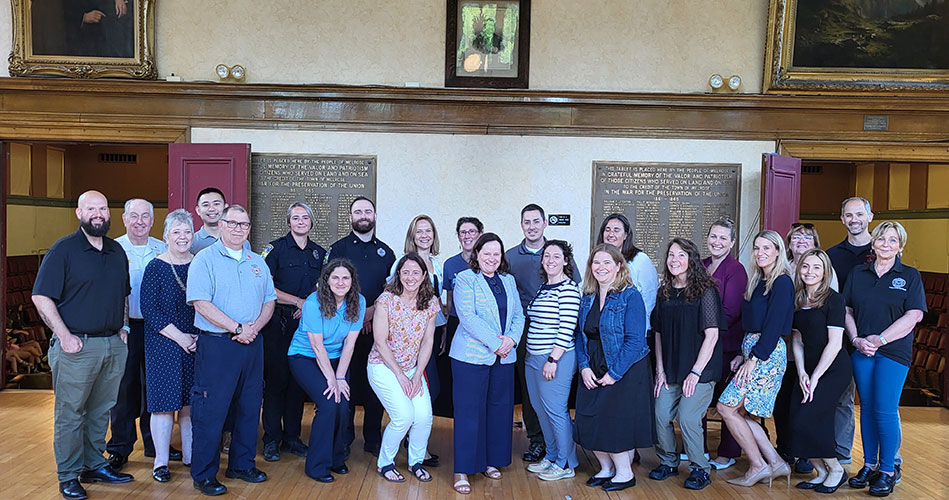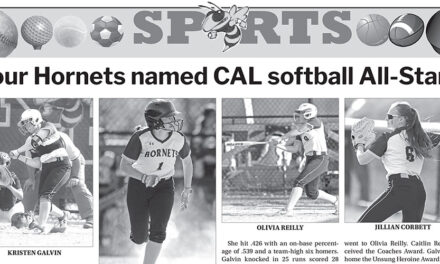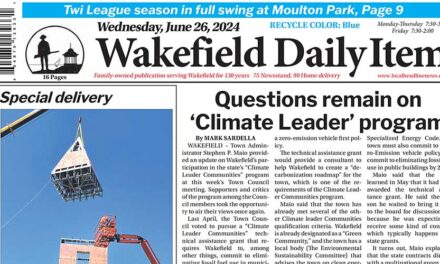
CITY OF MELROSE employees participated in the June 11 Civics Day event. (Photo courtesy of the City of Melrose)
MELROSE—On Tuesday, June 11, Melrose Veterans Memorial Middle School Grade 8 students visited Memorial Hall and Melrose City Hall as a capstone for the year’s civics curriculum. Students met with municipal elected officials and representatives from City departments and toured City Hall to learn about the role and impact of local government.
As part of the program, Grade 8 students Alexandra Kiatos and Gianna Zhang delivered an inspiring speech about civics, reproduced below:
Whether you’ve heard the story of Rosa Parks and how she fought for equal rights, or the journey that Cesar Chavez went through to protest actively, they both have something in common. Change. They’re both changemakers who put the effort in to make change in their community. A changemaker can be anyone, no matter who they are, who sees a problem and decides to take action to fix that problem. But first, before change, action, or even research, there must be passion and dedication.
And I’m sure everyone here has thought of a change they want to make. In the community, in the country, in the world, a change you want to make. And now, through the Civic Action Project, we have learned the steps it takes to reach out to others, efficiently goal-set, and most importantly, work together as a group to achieve a common outcome. Whether it be the support from your friends, peers or educators, you are able to make the change you want to make. Every step has been laid out.
To our beautiful community here in Melrose, we thank you all for the opportunities we have to create change. We are so thankful to be welcomed into a community where change is encouraged. Thanks to the countless effective community leaders we are surrounded by, such as our mayor and heads of our departments, change is a normality, something woven into all of our lives. From protestors on a street corner to signs stuck in the dirt with wires, to flyers in a shop window. Change is all around us, all the time. It’s in our neighborhoods and streets and stores. It’s even in our school curriculum.
So now, we would like to pose a question. What would your life be like if that type of change wasn’t normalized? As citizens, we have learned in Civics class that we have a responsibility to engage in our community. And many, many citizens aren’t aware of that power, or worse, aren’t able to uphold that duty. That is why introducing work like our CAP Projects is so important, especially at our age. But right now, I want to focus on just that, our CAP Projects, and the immense amount of effort we put into them to create change.
Because of this, you will always have the CHOICE to make and lead change in your area. That is a privilege not many have. You have that freedom that so many others have been deprived of. So, we invite you all to take this moment of gratitude for this freedom, but we also encourage you to think further past a graded assignment. Why stop at the CAP project?
Think back to the changemakers we mentioned at the beginning, and the many more you’ve learned about. Martin Luther King Jr. and Greta Thunberg, or Michelle Obama and Malala Yousafzai. For you to make change to happen in your community, you need to be passionate, determined and persistent. But most importantly, you have to be passionate BEYOND a civics class or a final grade. For change to effectively be made, you have to use the foundations we have been given and turn them into something deeper.
Many people may hold back from change, because it seems “too difficult” or “too scary.” But at the end of the day, the communities you are a part of impact you. And change is never a one-person job. I want to revisit our previously mentioned changemakers. See how some of these names you are familiar with. Observe the way they have many supporters with them. Although one figure may be seen as the “face” of a change, they are never alone. But also, how they represent change for different topics. Whether it be Cesar Chavez, fighting for equal pay, or Rosa Parks, fighting for civil rights, change varies from person to person. That is because the communities you are in impact the change you may want to make.
And the change you want to make impacts others, too. Whether it’s a high school friend signing your petition, or as big as the next generation being inspired by you to make a change of their own.
Let’s think about it this way: someday, you’ll look out at and think of your community and say, “Look at all our community has become.” But, by involving yourself in change, you’ll be able to take in your community with triumph. Rather than looking at your community as “becoming” something, you will look out and think, “Look at the community we created, together.”





